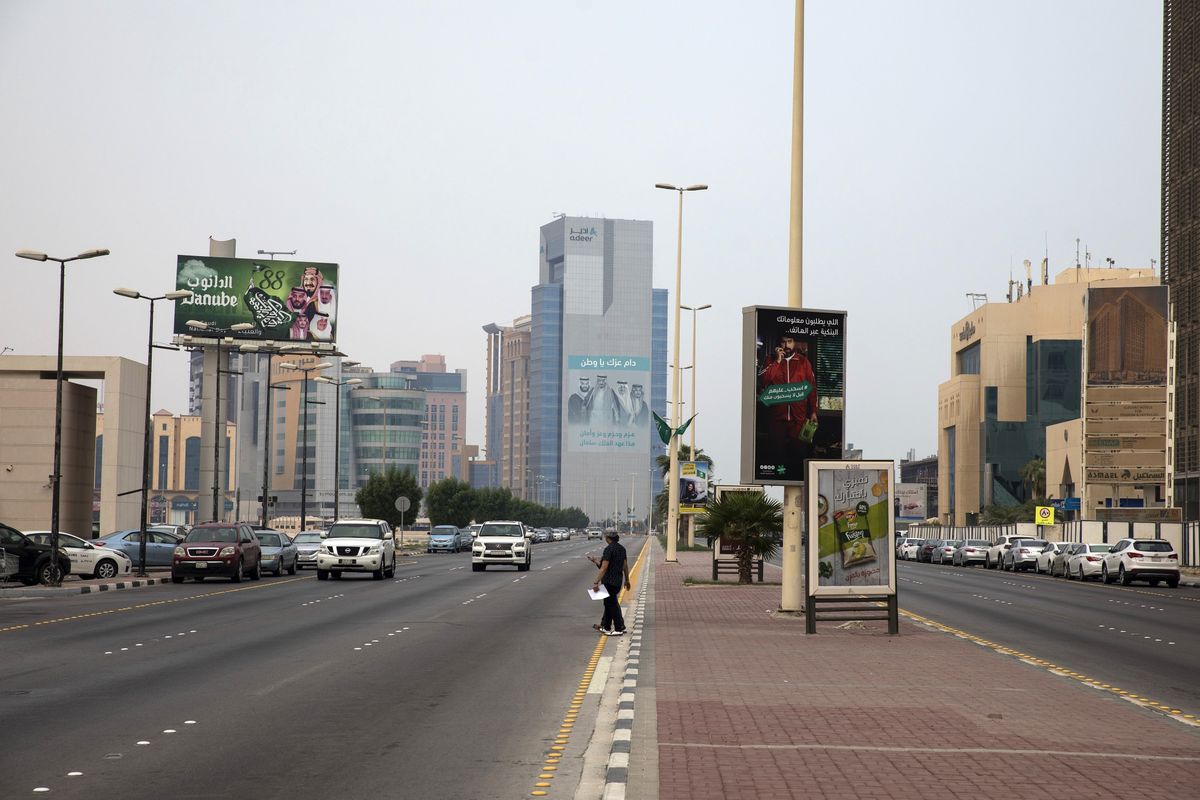Economy
Saudi Arabia Said to Review Expat Fees as Economy Feels Sting

Saudi Arabia is reviewing its policy of imposing fees on expatriate workers after rising costs inflicted economic pain and contributed to an exodus of foreigners, according to four people familiar with the matter.
While it’s unlikely the fees will be canceled altogether, a ministerial committee is looking at modifying or restructuring them, one of the people said. A decision is expected within weeks, two of the people said. They all spoke on condition of anonymity because the information isn’t public yet.
Announced in 2016 as part of a drive to increase non-oil government revenue — a key goal of Crown Prince Mohammed bin Salman’s economic transformation plan — the fees have been unpopular with business owners in a country accustomed to cheaper foreign labor. Partly as a result, hundreds of thousands of foreigners have left the kingdom, hitting the already-struggling economy but failing to make much of a dent in Saudi unemployment.
The aim of the review is to reconcile the government’s fiscal needs with the ability of the private sector to hire and grow, one of the people said.
The Labor Ministry and the government’s Center for International Communication didn’t immediately respond to requests for comment.
After the kingdom’s economy contracted 0.9 percent last year, officials are keen to stimulate the private sector, which has had difficulty adapting to some of the crown prince’s rapid policy changes.
A Bloomberg survey of analysts showed gross domestic product is expected to expand 2.2 percent this year, still modest compared to growth rates before the oil-price rout of 2014 spurred Prince Mohammed’s overhaul plan, dubbed “Vision 2030.”
Two types of so-called expat fees are currently in force. The first, charged for each familial dependent of a foreign worker, was implemented in July 2017. It started at 100 riyals ($27) a month per dependent and is scheduled to increase by 100 riyals each year. The second kind of fee was introduced in January and is borne by businesses that employ foreigners, partly to encourage them to hire Saudis.
As the charges came into effect, many foreigners decided to send their families home or left altogether. That’s affected a wide range of the businesses that served them, from restaurants to telecommunication companies. Meanwhile, despite the departures, Saudi unemployment has inched up to 12.9 percent, its highest level in more than a decade.
-

 Banking & Finance2 weeks ago
Banking & Finance2 weeks agoOman Oil Marketing Company Concludes Its Annual Health, Safety, Environment, and Quality Week, Reaffirming People and Safety as a Top Priority
-

 Economy2 months ago
Economy2 months agoMaal Card: What Oman’s New National Payment Card Means for Everyday Users
-

 Events2 months ago
Events2 months agoOER Corporate Excellence Awards 2025 Honours Entities and Innovations in Oman
-

 News2 months ago
News2 months agoSheikh Suhail Bahwan, Chairman of Suhail Bahwan Group, Passes Away
-

 News1 month ago
News1 month agoOIG Appoints New CEO to Lead Its Next Chapter of Excellence
-

 Economy2 months ago
Economy2 months agoOman Unveils Official Omani Rial Symbol in Landmark Move to Boost Global Currency Presence
-

 News1 month ago
News1 month agoReport: How India & The Middle East Are Exploiting Immense Economic Synergies
-

 Uncategorized1 month ago
Uncategorized1 month agoOman’s ISWK Cambridge Learners Achieve ‘Top in the World’ and National Honours in June 2025 Cambridge Series



























You must be logged in to post a comment Login